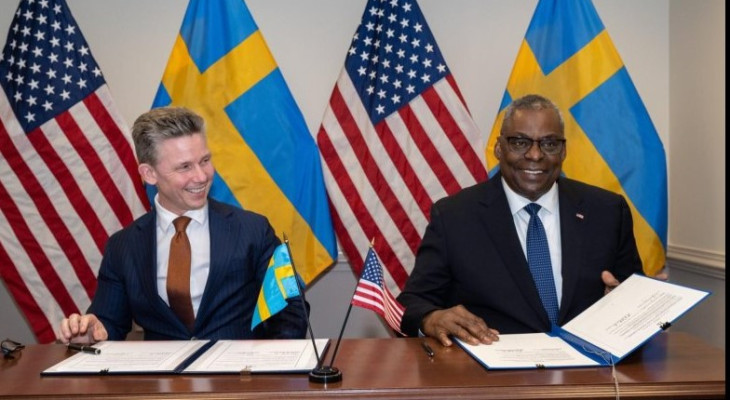In a historic development, U.S. Secretary of Defense Lloyd Austin and Swedish Minister of Defense Pal Jonson convened at the Pentagon on Tuesday to formalize the first-ever U.S.-Sweden Defense Cooperation Agreement. This significant accord is poised to redefine the collaborative landscape between the two nations, establishing a comprehensive framework for enhanced defense cooperation.
The agreement, a product of diplomatic discussions and negotiations, sets the stage for intensified military collaboration by delineating crucial aspects of U.S. forces’ operations within Sweden. Among the pivotal components outlined in the agreement are provisions addressing the legal status of U.S. military personnel, ensuring clarity and legal protection for servicemen and women operating in Sweden.
Moreover, the accord addresses access to deployment areas, streamlining logistical considerations for U.S. forces operating in the region. This includes delineating specific zones where military personnel can be deployed, enhancing operational efficiency and coordination.
The pre-positioning of military materiel, another focal point of the agreement, facilitates strategic planning and readiness. By identifying locations for the storage and deployment of military equipment, both nations aim to enhance their collective defense capabilities and response times.
To navigate the complexities of international operations, the agreement also addresses tax and customs regulations. This ensures a smooth logistical process for U.S. forces in Sweden, mitigating potential hurdles related to taxation and customs procedures.
Beyond the immediate operational aspects, the U.S.-Sweden Defense Cooperation Agreement underscores a deeper commitment to mutual security and collaboration. The pact signifies a shared understanding of the evolving global security landscape and the need for nations to work collaboratively to address emerging challenges.
As diplomatic relations strengthen through this landmark agreement, both the United States and Sweden anticipate reaping the benefits of a more streamlined and cooperative defense partnership. This development not only solidifies the bilateral ties between the two nations but also serves as a testament to their shared commitment to regional and global security.
















